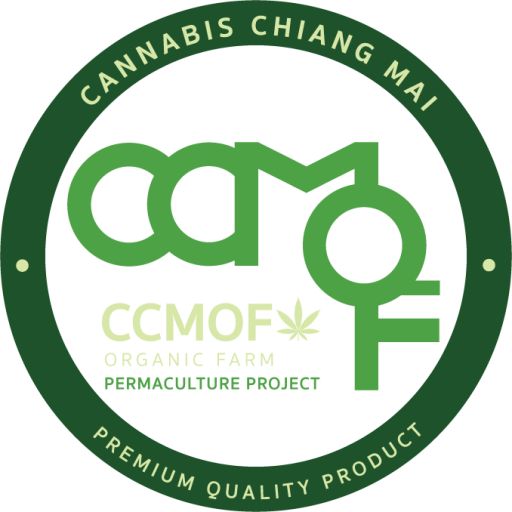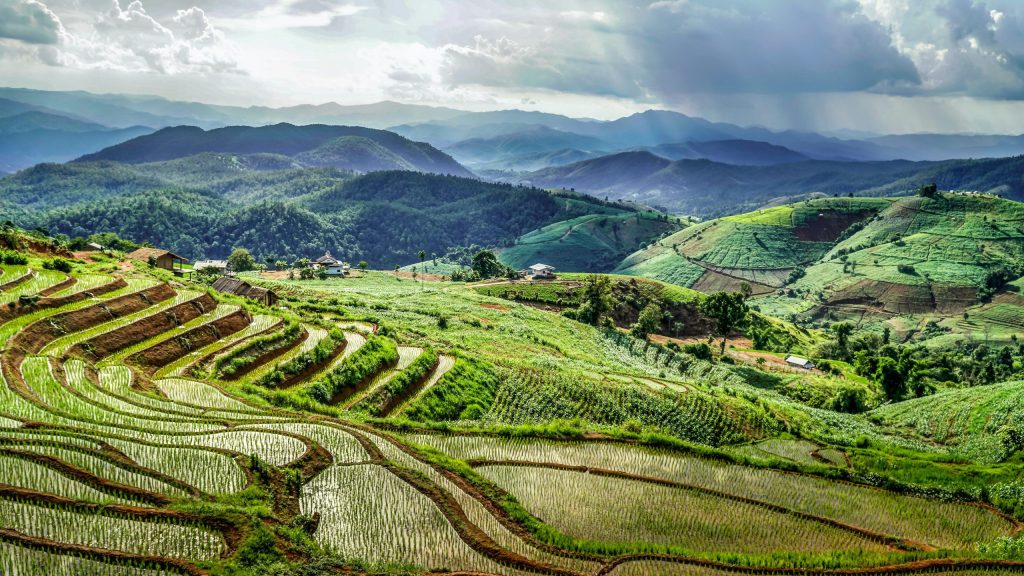Introduction to Thailand’s Permaculture Cannabis Production Industry
Thailand’s cannabis industry has been making waves in recent years, particularly with the emergence of permaculture practices in cannabis cultivation. This cutting-edge approach combines sustainable farming techniques, ecological principles, and innovative technology to create a more holistic and environmentally friendly process from seed to smoke. By embracing permaculture, Thailand is not only revolutionizing the way cannabis is grown but also reaping the benefits of improved quality, enhanced sustainability, and a thriving industry. In this article, we will delve into the fascinating world of Thailand’s permaculture cannabis production, exploring the various aspects of this industry, from the advantages of permaculture to the latest innovations and the promising future it holds.
1.Introduction to Thailand’s Permaculture Cannabis Production Industry
1.1 The Rise of Permaculture Cannabis in Thailand
Thailand’s cannabis industry has been experiencing an exciting shift towards permaculture practices. Permaculture, a holistic approach to agriculture, emphasizes the creation of sustainable and self-sufficient ecosystems. This innovative method is now making waves in the cannabis cultivation sector, transforming the way plants are grown from seed to smoke.
1.2 Overview of the Thai Cannabis Industry
With the recent legalization of medical cannabis in Thailand, the country’s cannabis industry has been gaining momentum. Thai farmers, renowned for their agricultural prowess, have embraced the opportunity to cultivate cannabis using permaculture principles. By combining ancient farming wisdom with modern innovations, they are revolutionizing the way cannabis is produced in the country.
2.The Benefits of Permaculture in Cannabis Cultivation
2.1 Understanding Permaculture Principles
Permaculture principles are centered around working with nature rather than against it. By mimicking natural ecosystems, permaculture maximizes biodiversity, minimizes waste, and fosters harmony between plants, animals, and the environment. These principles, when applied to cannabis cultivation, offer a range of benefits.
2.2 Environmental and Sustainability Advantages
One of the key advantages of permaculture cannabis production is its positive impact on the environment. By eliminating the use of synthetic pesticides and fertilizers, permaculture practices protect soil health and prevent water pollution. Additionally, by embracing regenerative agricultural techniques, such as composting and cover cropping, permaculture cultivators promote soil regeneration and conservation.
2.3 Health and Quality Benefits
Permaculture cannabis farms prioritize the health and quality of their plants. By cultivating in a diverse and resilient ecosystem, plants have a stronger defense against pests and diseases, reducing the need for chemical interventions. This emphasis on natural cultivation methods translates into healthier and higher-quality cannabis products for consumers.
3.Sustainable Farming Practices at Thai Cannabis Farms
3.1 Organic Cultivation Methods
Thai cannabis farms practicing permaculture rely on organic cultivation methods. This means avoiding synthetic chemicals and instead utilizing natural solutions like beneficial insects and companion planting to manage pests. By nurturing the soil with compost and organic matter, these farms create a nutrient-rich environment that supports healthy plant growth.
3.2 Soil Regeneration and Conservation Techniques
Soil health is paramount in permaculture cannabis production. Thai farms employ various soil regeneration and conservation techniques, such as crop rotation, cover cropping, and minimal tillage. These methods reduce soil erosion, increase organic matter content, and enhance nutrient cycling, resulting in fertile and resilient soils.
3.3 Water Management Strategies
Water scarcity is a growing concern, and permaculture cannabis farms in Thailand prioritize efficient water management. Through techniques like rainwater harvesting, drip irrigation, and mulching, these farms minimize water waste and ensure that plants receive adequate hydration without straining local water resources.
4.Innovations in Seed Selection and Breeding Techniques
4.1 Importance of Genetic Diversity in Cannabis
Permaculture cannabis farms understand the significance of genetic diversity for ensuring plant resilience and adaptability. By preserving and promoting a wide range of cannabis varieties, these farms contribute to the conservation of unique genetic traits and protect against the risks of monoculture.
4.2 Cutting-Edge Seed Selection Methods
To achieve desirable traits in their cannabis plants, Thai farms employ cutting-edge seed selection methods. These techniques involve careful observation, meticulous documentation, and rigorous testing to identify plants with superior characteristics such as potency, aroma, and disease resistance. By selecting seeds with specific traits, farmers can cultivate strains that cater to evolving consumer preferences.
4.3 Breeding for Desired Characteristics and Traits
Permaculture cannabis farms are not afraid to get their hands dirty in the pursuit of breeding excellence. Through a combination of traditional breeding methods and modern advancements like tissue culture, these farms work towards creating new cannabis varieties with desired traits, such as improved yield, unique flavors, or specific medicinal properties.
From seed to smoke, Thailand’s permaculture cannabis production industry is paving the way for a more sustainable and quality-oriented approach to cultivation. By integrating nature’s wisdom with scientific innovation, Thai farmers are showing us that growing cannabis can be both environmentally responsible and exceptionally rewarding.
5.Cultivating and Caring for Cannabis Plants in a Permaculture System
In this section, we delve into the essential aspects of cultivating cannabis in a permaculture system. We discuss the importance of site selection and preparation, ensuring that the environment is ideal for the plant’s growth. We explore how integrating companion plants and beneficial insects can help create a balanced ecosystem that aids in pest control and promotes plant health. Additionally, we touch upon proper nutrient management techniques to optimize the plant’s growth and overall yield.
6.Harvesting and Processing Techniques for High-Quality Cannabis
This section focuses on the crucial steps involved in harvesting and processing cannabis to obtain high-quality products. We emphasize the importance of determining the optimal harvest time to achieve the desired potency and flavor profile. We also discuss the post-harvest handling and drying methods to preserve the plant’s integrity and prevent any degradation. Furthermore, we explore various processing techniques, such as extraction methods, to produce different cannabis products that cater to diverse consumer preferences.
7.The Role of Technology in Thailand’s Permaculture Cannabis Industry
Here, we highlight how technology plays a vital role in the advancement of Thailand’s permaculture cannabis industry. We examine the use of automation and monitoring systems, which streamline production processes and ensure consistent quality. Furthermore, we explore how artificial intelligence and data analytics assist in optimizing cultivation practices and making data-driven decisions. Lastly, we discuss the innovative technologies utilized in extraction and production, enhancing efficiency and expanding the range of cannabis-derived products.
8.The Future of Permaculture Cannabis Production in Thailand
In the final section, we take a glimpse into the future of permaculture cannabis production in Thailand. We analyze market trends and growth prospects, highlighting the increasing demand for sustainable and organic cannabis products. Additionally, we touch upon the evolving regulatory landscape and how it may shape the industry’s development. We conclude by expressing optimism about the potential for Thailand’s permaculture cannabis industry to flourish and contribute to both the economy and the environment.
Remember, these are just brief summaries of each section. You can expand upon these ideas to create engaging and informative content for your article.In conclusion, Thailand’s permaculture cannabis production industry represents a remarkable synergy between nature, sustainability, and technology. By prioritizing ecological principles and adopting innovative practices, Thai cannabis farms are paving the way for a more conscientious and environmentally friendly approach to cultivation. As the industry continues to grow and evolve, it holds great promise for the future of cannabis production both in Thailand and beyond. With its commitment to permaculture, Thailand is not only producing high-quality cannabis but also setting a shining example for sustainable agriculture worldwide.
FAQ
- What is permaculture cannabis production?
Permaculture cannabis production is an innovative approach to cultivating cannabis that integrates sustainable farming practices, ecological principles, and advanced technology. It aims to create a more holistic and environmentally friendly process, focusing on regenerative techniques, biodiversity, and the overall health of the ecosystem.
- How does permaculture benefit cannabis cultivation?
Permaculture offers numerous benefits to cannabis cultivation. It promotes soil health, water conservation, and reduces reliance on synthetic inputs, resulting in higher quality and more sustainable cannabis products. It also encourages biodiversity, enhances resilience to pests and diseases, and minimizes negative environmental impacts associated with traditional cultivation methods.
- What are some key components of permaculture cannabis farming?
Permaculture cannabis farming involves several key components, including organic cultivation methods, soil regeneration and conservation techniques, companion planting, integrated pest management, water management strategies, and utilizing cutting-edge technology for automation and data-driven decision-making.
- Are there any challenges in implementing permaculture in cannabis production?
While permaculture offers numerous advantages, it does come with its own set of challenges. Implementing permaculture practices requires a deep understanding of ecological systems, careful planning, and ongoing management. Additionally, transitioning from conventional farming methods to permaculture can be a complex process, requiring education, training, and initial investment in infrastructure and technology. However, the long-term benefits and sustainability of permaculture make it a worthwhile endeavor for the cannabis industry.

 ไทย
ไทย



